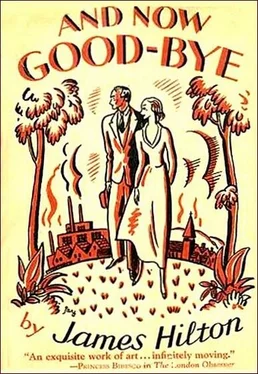He had never thought about the matter until now, but he answered: “Oh no, I’m not tired, either.”
“I’m afraid it’s selfish of me—I’m forgetting the long day you’ve had.”
“I’ve had one of the most extraordinary days of my life—far too wonderful to have been tiring.”
“You’ll be tired to-morrow.”
“I shall probably sleep in the train all the way.
“Then at Browdley I suppose your work begins again immediately?”
“Yes. I’ve got a Bazaar Committee meeting and the Young Men’s class to-morrow night, and Sunday’s going to be even busier than usual, because it’s Armistice Day.”
“And I shall be on my way to Vienna. Isn’t it odd to think about it? Do you suppose we shall ever meet again?”
“If you come to Browdley, perhaps, or if I go to Vienna.”
“Neither of which seems very likely, does it?”
“I’m afraid it doesn’t.”
“Then we’ve got to make the most of what’s left. When I think of all those hours we spent over the German without ever guessing how much we both liked—Brahms—”
“I once heard you humming the opening theme of that sonata. I was rather surprised.”
“There was your chance. If you had only asked me about it—”
“I know. I wish I had asked you. I’m an awful misser of chances.”
“Does nobody in Browdley know anything about you?”
“Oh, I’m not really such a mystery as all that. I think quite a number of people know me fairly well.”
“But the music?”
“That’s not a secret—it’s merely that most people aren’t interested. You wouldn’t be, unless you were keen on the thing yourself.”
They had walked away from the hall and were now in quiet and almost deserted side-streets. “Where shall we go?” she asked, and he could not give any definite answer, except a suggestion that they should make their way nearer to the the theatres and restaurants. He knew little about London’s night civilisation and at that moment cared even less. His senses were full of enchantments, and he was perfectly happy to be strolling in a direction which, by instinct rather than calculation, he believed to be correct. With her arm in his they walked all the way, skirting spacious squares and across the main traffic highways and into narrow yards and alleys and diagonally across short streets from lamp-post to lamp-post, past shuttered windows and cabmen’s shelters and cats sitting delicately in doorways; till at last a distant glow over roofs came so near that they walked abruptly right into it—it was Piccadilly Circus. All the way they had been talking, but now they stopped, dazzled by the brilliance, and felt for a moment like country cousins. There were so many restaurants where evening dress was clearly expected, and so many others whose precise character did not look too obvious, that finally Howat made for the swing doors of the Regent Palace Hotel; he had heard of it; it was where people from Browdley sometimes stayed.
Under the dome in the lounge of that rather amazing establishment they took coffee and sandwiches and smoked cigarettes. A certain recklessness was on him, not diminished by the realisation that it was approaching an hour when all good parsons are in bed. The colourful scene alternately attracted and repelled; it pulsated with crude, animal vitality, and the saxophones droning in the distance expressed that vitality to perfection, within the limits of their own peculiar technique. It was all something that he rather disliked, yet it drew him nearer in mind and sympathy to the girl at his side; he looked at her as she sat there, so calm and close to him, and he thought: But for you I should be fantastically unhappy in this place, but with you it’s rather exhilarating; you make its vitality stand out; you’re like a prism, through which I’m managing to see all kinds of different, magical things…And then, in a way that had never happened before, he reflected: Browdley—Browdley—Browdley to-morrow…
“I hope we shall meet again sometime,” he said, transmuting his thought a little.
“Yes, I do, too,” she answered, and they exchanged a glance that lasted only a fraction of a second, and then went on talking, about music and pictures and books and all kinds of side-topics that thrust themselves unwanted yet unshirked into the conversation; it was midnight before they decided that they really must go. As they passed through the crowded lobby and into the street, he said: “Let me see now—where is it you said you were staying?”
“South Kensington. It’s a studio in a sort of mews. The people who have it are rather amusing—the man’s an actor and the woman paints—very badly, I’m afraid—but they’ve both been awfully nice to me. They’re friends of Isaac’s, and when he wrote to them about me they asked me to stay with them as long as I was in London.”
Crowds were jostling down the tube entrances.
“I suppose the tube’s your best way,” he said, “but there seems a tremendous rush. Would you rather try for a bus? It’s not so quick, but usually pleasanter.”
“I’ve got a return ticket from Charing Cross. That’s only a few minutes’ walk away.”
So they set off down the Haymarket and across Trafalgar Square; six-and-a- half hours, he reflected, since he had met her there outside the post office; but the interval was hardly reckonable in time. Down Northumberland Avenue to the river the wind swept past them in cold gusts; little pools in the gutters were already frozen hard. They crossed the tramlines to look at the river, rolling by like coils of black snakes; the railway bridge soared above them, glittering with red and green signal-lights. A moving brilliance zoomed across and sent a cascade of silver-blue sparks into the darkness below. “How beautiful that is,” she exclaimed, watching the train disappear over the south side.
“That’s the bridge they’re always talking of pulling down because they say it’s ugly and spoils what’s supposed to be one of the finest views in the world.”
“I think it’s much more beautiful than a good many views of that sort.”
“Yes. It represents the best of its period just as the architecture of my chapel represents the worst. The Victorians only achieved beauty when they aimed at utility.”
“I know. I always think the best things in Browdley to show visitors are the cotton-mills. They’re so downright ugly you can stand them—they’re almost beautiful because of that. Anyhow, they’re not depressing, and they don’t put on airs, like the Town Hall and the Technical School.”
They walked over the road to the station entrance and he was full of the feeling that there were unnumbered things he wanted to say to her and that as soon as she was gone they would all come tumbling upon him. But when they reached the booking-hall they found there were no more trains. They might get a bus, someone suggested, in the Strand, so they hurried back along Northumberland Avenue to Trafalgar Square and puzzled themselves over several vehicles, all quite full, that were bound for places neither of them had ever heard of. At length he said: “Well, we can walk a little way, unless you’re tired, and get one as it overtakes us. I daresay there’ll be room in them soon.” It sounded rather vague, but she agreed without argument, and they skirted the corner of the square and passed under the Admiralty Arch into the Mall, unaware that omnibuses did not traverse that spacious highway. But it was pleasant enough to stroll at one o’clock in the morning under the leafless trees. At last a turning opened out on the left and she exclaimed: “Oh, let’s go down here, it leads through St. James’s Park to Victoria Station—I know there are always late buses from there. And there’s no hurry so far as I’m concerned; those people I’m with always stay up half the night. Besides, they gave me a key.”
Читать дальше











